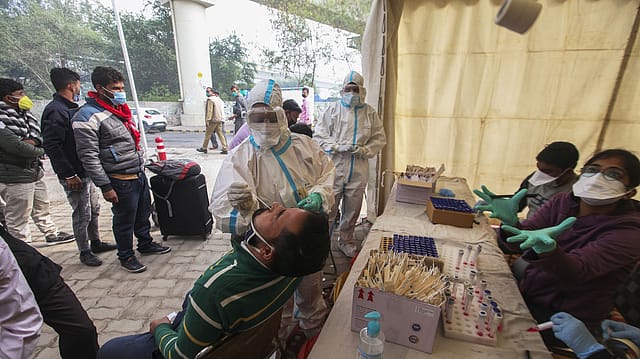Covid-19 no longer a public health emergency: WHO
ADVERTISEMENT

The World Health Organisation (WHO) on Friday said that the Covid-19 pandemic is now an 'ongoing health issue' that no longer constitutes a public health emergency of international concern (PHEIC).
The decision comes after the fifteenth meeting of the International Health Regulations (IHR) Emergency Committee regarding the coronavirus 2019 disease (Covid-19) pandemic was held on May 4, 2023.
The committee members highlighted the decreasing trend in Covid-19 deaths, the decline in Covid-19 related hospitalisations and intensive care unit admissions, and the high levels of population immunity to SARS-CoV-2, the United Nations' public health agency says.
Tedros Adhanom Ghebreyesus, the WHO Director-General, concurred with the advice offered by the committee regarding the ongoing pandemic. The WHO Director-General noted the number of weekly reported deaths and hospitalisations continues to decrease, but expressed concern that surveillance reporting to WHO has declined significantly, that there continues to be inequitable access to life-saving interventions, and that pandemic fatigue continues to grow.
The committee's position has been evolving over the last several months. While acknowledging the remaining uncertainties posted by potential evolution of SARS-CoV-2, they advised it is time to transition to long-term management of the Covid-19 pandemic, the WHO says in a statement.
"While the global risk assessment remains high, there is evidence of reducing risks to human health driven mainly by high population-level immunity from infection, vaccination, or both; consistent virulence of currently circulating SARS-CoV-2 Omicron sub-lineages compared to previously circulating Omicron sub-lineages; and improved clinical case management. These factors have contributed to a significant global decline in the weekly number of COVID-19 related deaths, hospitalizations, and admissions to intensive care units since the beginning of the pandemic. While SARS-CoV-2 continues to evolve, the currently circulating variants do not appear to be associated with increased severity," says the WHO.
Globally, 13.3 billion doses of Covid-19 vaccines have been administered, as per the WHO data.
Covid-19 cases in India
In April, India's Health Ministry wrote to eight states where the localised spread of Covid-19 infection was the highest to institute public health measures to control and contain such surges in the initial stages itself.
The ministry had asked all eight state governments to institute prompt and effective public health measures, which include strengthening of Covid-19 surveillance, monitoring trends of influenza-like illness, increasing the number of Covid-19 testing, increasing the number of whole genome sequencing of positive samples, encouraging precautionary doses of vaccination and improving community awareness.